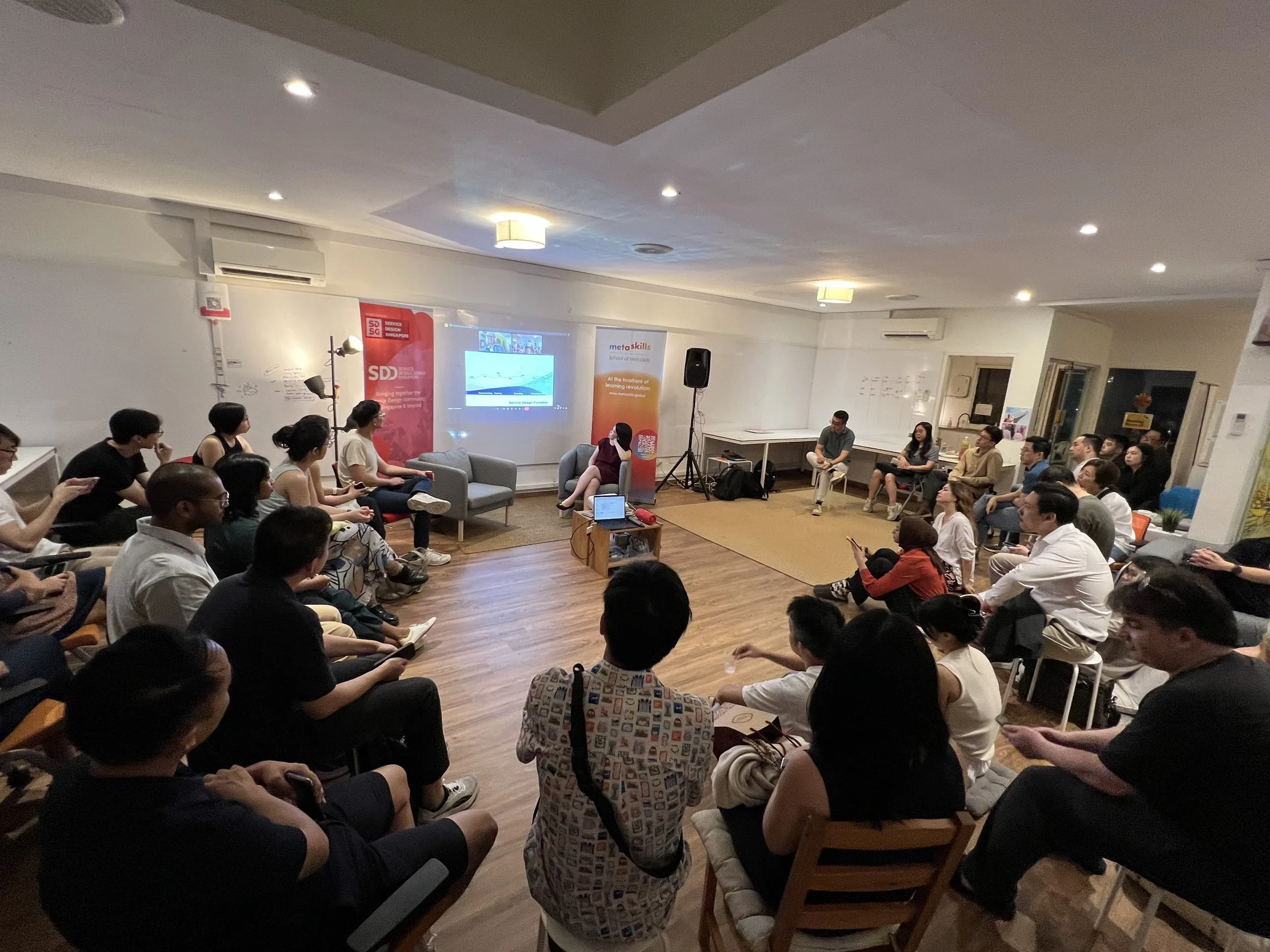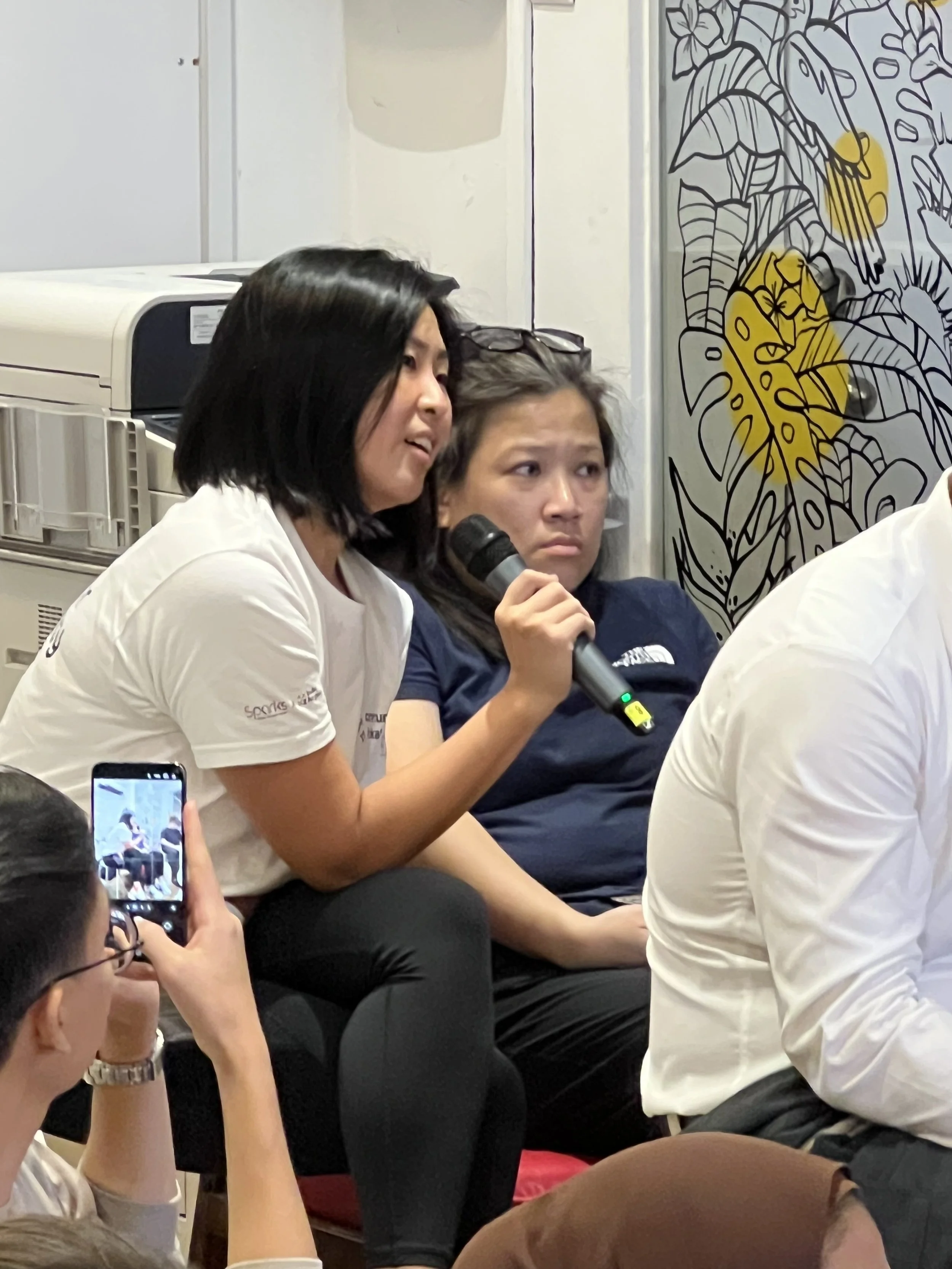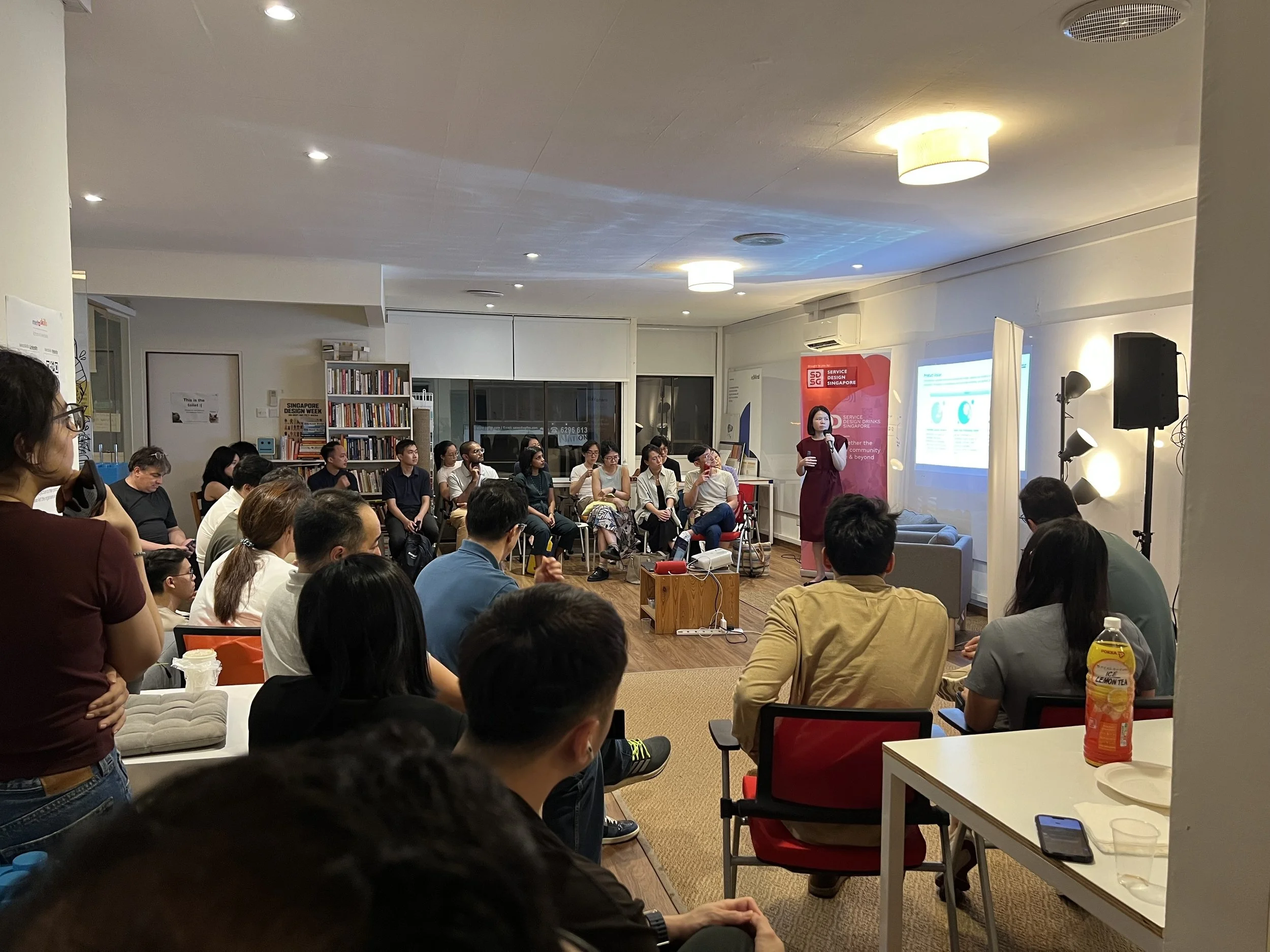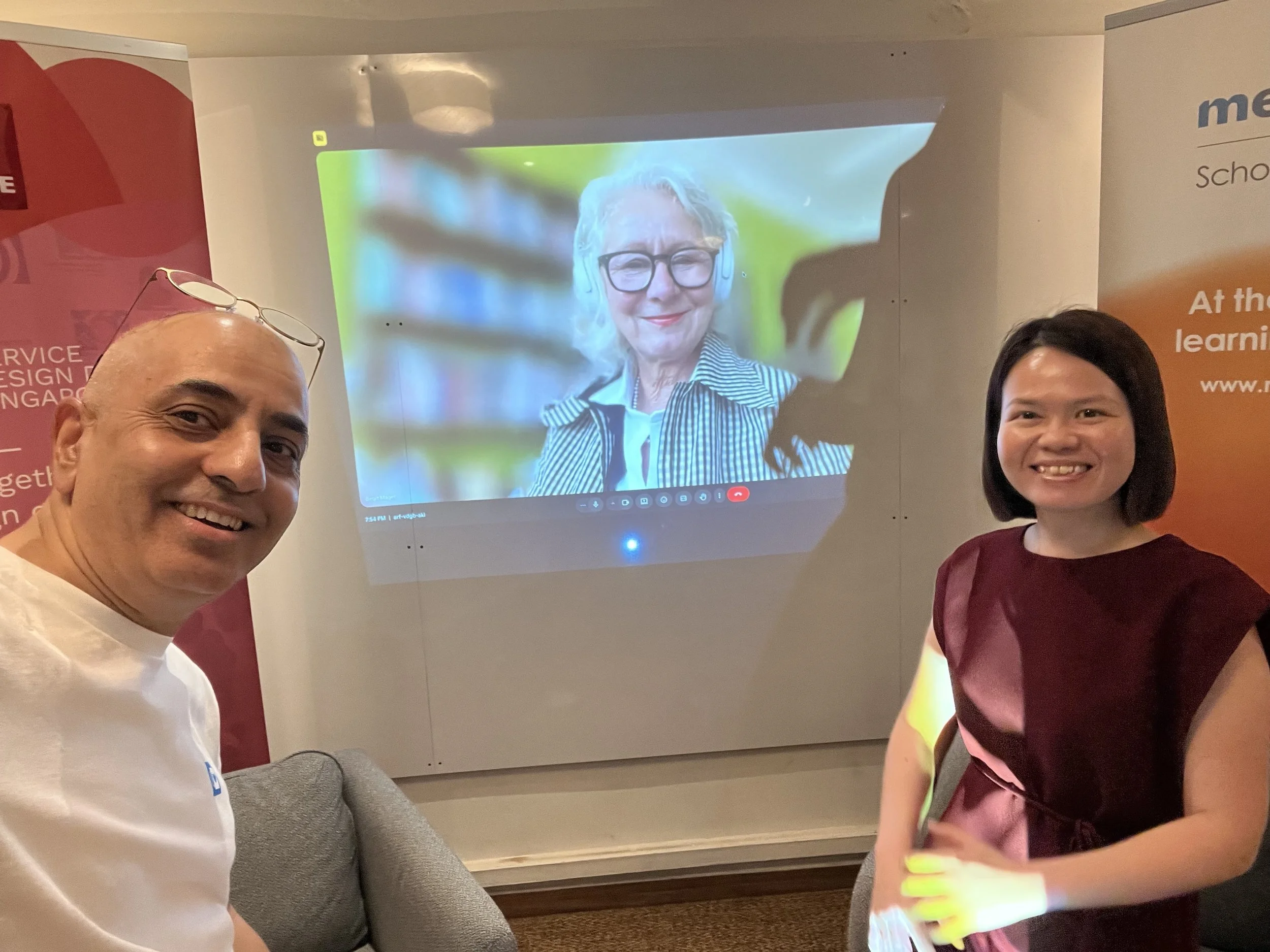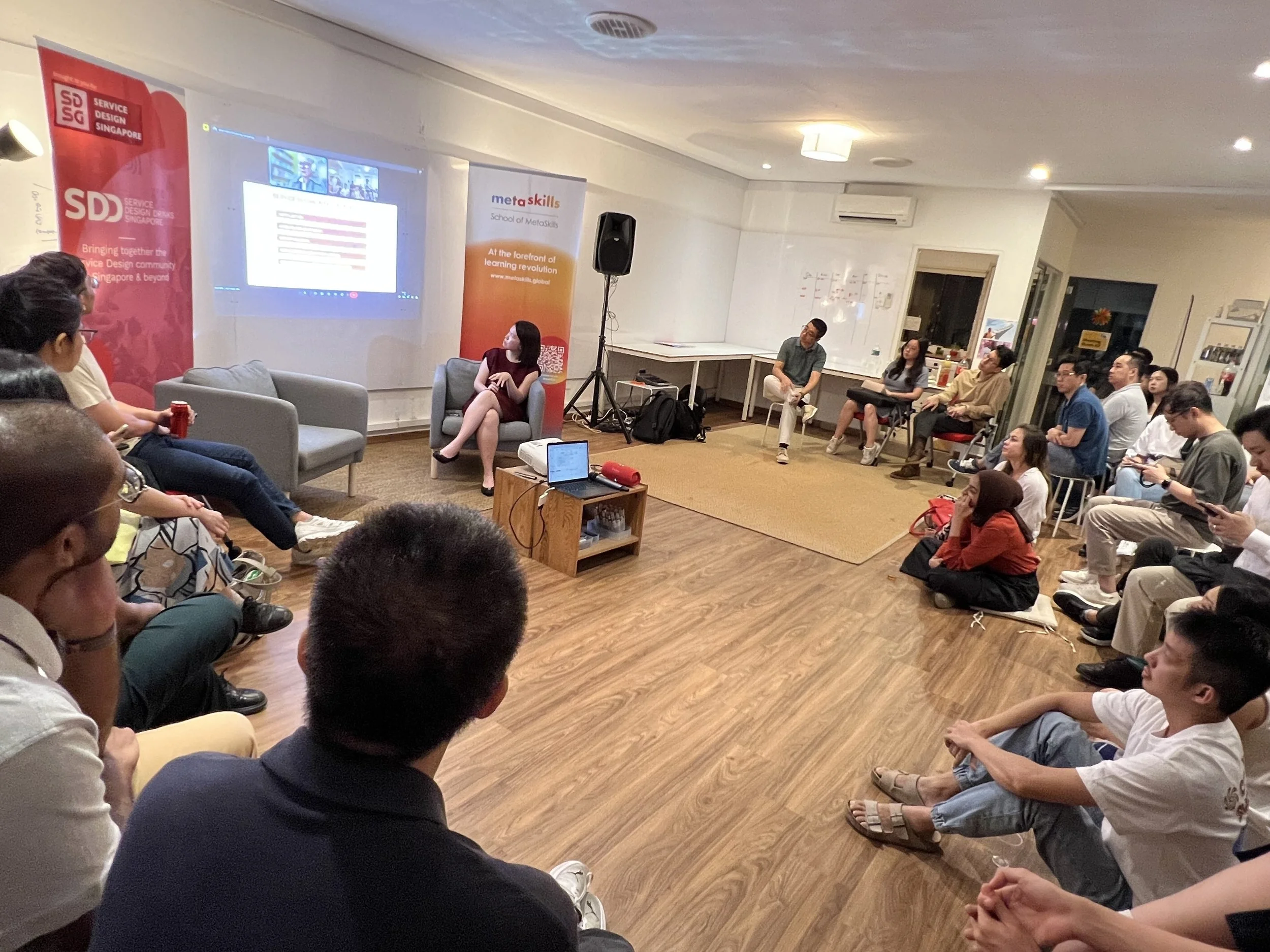Designing with a Different North Star: Service Design in the Public Sector
Service Design Singapore had the privilege of hosting two great speakers with great body of work in public service design:
Prof Birgit Mager from Köln International School of Design, Founder & President of Global of Service Design Network
Hefen Wong from Singapore’s Ministry of Manpower, Director of Work Pass Systems and Experience, Work Pass Division
Here are some highlights from the session:
1. 🎯 DESIGNING FOR PUBLIC NOT PROFIT - Prioritisation in design should be guided by principles & metrics such as ‘capacity’ of service to deliver on policy requirements or ‘quantifying’ the cost of effecting the request.
2. 🤝 GENUINE CITIZEN CENTRICITY IS NON NEGOTIABLE, EMPATHISE AND CREATE WITH CITIZENS. This involves going beyond assumptions to actively "listen," "engage with lived experience," and integrate citizen voices through methods like "citizen sounding boards," ultimately empowering them with ownership over the services that affect their lives.
3. DESIGN WITH DIGNITY & HUMANITY OF PEOPLE IN MIND. Prof Mager @Birgit Mager shared about the work she has done with people experiencing homelessness in Germany and the importance of truly empathising to be able to create solutions that prioritise the ‘dignity and humanity’ of users.
3. DO NOT OVERDESIGN - Hefen shared about the work done for MOM’s Work Pass Integration System. Through her case study sharing she demonstrated that to create value for users, it is crucial not to overly-design solutions.
4. 🏞 SERVICE DESIGN AS A MARATHON, NOT A SPRINT - Transforming public services is a long-haul endeavor, truly a "marathon, not a sprint." For multi-year projects, maintaining team motivation requires clear, motivating deadlines that encourage collective focus and drive towards achieving and maintaining consistent high-quality service ratings from users.
5. 🛠️ BREAKING PAST ORGANISATIONAL SILOS AND FOSTERING COLLABORATIVE DESIGN ECOSYSTEM - Key to implementing service design to transform legacy system is to form collaborative design ecosystems within organisations which creates ownership and buy-in.
6. 🤖 UTILISE AI ETHICALLY AND HUMANELY - AI can raise the efficiency and productivity of public sector services. The challenge is finding ethical and human ways to leverage technology while ensuring that digitization doesn't leave vulnerable populations behind.
Singapore's labor shortage makes digital services attractive as a use case for AI. However, there's a critical question about whether AI can adequately handle edge cases and maintain the human touch that many government services require.


